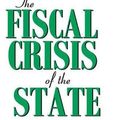
The Fiscal Crisis of the State
James O'Connor
Fiscal Crisis of the State refers to the tendency of government expenditures to outpace revenues in the U.S. in the late 1960s and early 1970s, but its relevance to other countries of the period and also in today's global economy is evident. When government expenditure constitutes a larger and larger share of total economy theorists who ignore the impact of the state budget do so at their own (and capitalism's) peril. This volume examines how changes in tax rates and tax structure used to regulate private economic activity. O'Connor theorizes that particular expenditures and programs and the budget as a whole can be understood only in terms of power relationships within the private economy. O'Connor's analysis includes an anatomy of American state capitalism, political power and budgetary control in the United States, social capital expenditures, social expenses of production, financing the budget, and the scope and limits of reform. He shows that the simultaneous growth of monopoly power and the state itself generate an increasingly severe social crisis. State monopolies indirectly determine the state budget by generating needs that the state must satisfy. The state administration organizes production as a result of a series of political decisions. Over time, there is a tendency for what O'Connor calls the social expenses of production to rise, and the state is increasingly compelled to socialize these expenses. The state has three ways to finance increased budge
Booko found 6 book editions
Product filters
| Product |
Details
|
Price
|
New
|
Used
|
|---|---|---|---|---|
|
|
New: $220.00
Used: $39.95
|
New: $220.00
Used: $39.95
|
$220.00 | $39.95 |
|
|
New: Being refreshed...
Used: Being refreshed...
|
New: Being refreshed...
Used: Being refreshed...
|
Being refreshed... | Being refreshed... |
|
|
New: $356.99
Used: Click to Check
|
New: $356.99
Used: Click to Check
|
$356.99 | Click to Check |
|
|
New: Click to Check
Used: Click to Check
|
New: Click to Check
Used: Click to Check
|
Click to Check | Click to Check |
|
|
New: Click to Check
Used: $39.35
|
New: Click to Check
Used: $39.35
|
Click to Check | $39.35 |
|
|
New: $82.70
Used: $122.41
|
New: $82.70
Used: $122.41
|
$82.70 | $122.41 |
Booko collects this information from user contributions and sources on the internet - it is not a definitive list of editions. Search Booko for other editions of The Fiscal Crisis of the State.
























